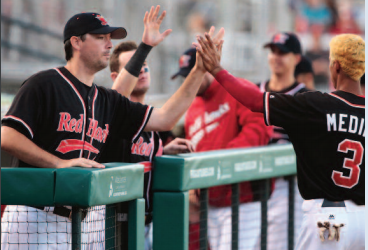
"Changing the culture of an entire organization or team starts with changing one person. So often, we want to have a big influence without being willing to influence one person at a time."
Every day, we hear people say things like “I wish I could make a difference,” or “I’ll never be able to influence that many people.” The truth is, we as coaches have usually have our sights set on goals and objectives that can take lots of time and lots of influence. We want to reap the big results without sowing the little seeds.
Consider as examples the great influential speakers of today, such as Jon Gordon and Inky Johnson. These individuals knew that they wanted to be leaders, but they didn’t just step up on a stage with bright lights and have thousands in attendance. It all started with a small, intimate conversation. That probably grew to a small group of people, then became larger and larger over time.
If you want to change the culture of your team or organization, the same must be true for you as a coach. Start with one person, one player. Focus your efforts on influencing, leading and impacting them. Eventually, others will notice the change, and they’ll want to be a part of what you’re doing. It starts with a small, intimate conversation.
In today’s society, we deal with constant negativity, unrelenting pressure, and unattainable standards. It is possible for coaches and sports to be places of refuge from these negative influences. The problem is that coaches can often face the same pressure to succeed, to fit in, and to ‘follow the pack’ just like kids do. We chase championships, try to win no matter the cost, and will be quick to step on whoever we have to so that we can keep climbing the ranks.
We forget that coaching is generational. Think about it: a player is going to wear your uniform, be a part of the team, and be in the organization for a few years at the most. However, the impact we have on them lasts their entire lives and in some ways, beyond!
You see, these kids we coach become parents, members of society, friends, co-workers, and many other things. How we treated them, spoke to them, and led them helps shape who they become and who they influence. Think back to when you were growing up. I guarantee that you can remember something that a coach said to you that brought you life and something a coach said that really made you feel bad about yourself. As coaches, we are impacting individuals we will never meet because of the impact we have on the ones we have on our teams today.
Watch what can happen when we become, and stay, intentional about leading. Instead of looking at an entire team or organization and worrying how to influence them all, begin with the baby steps of leading one person at a time. They will be changed for the better, and change for the better is attractive. People want to know what happened, why it happened, and how it happened. From there, over time, we begin to realize that influencing people is contagious both for us and for those in our care. Not only will we influence and change people for the better, those we’ve influenced will begin helping others as well.
Good culture is built from the ground up. It’s a grassroots effort that starts with the coach, spreads from those who have been influenced, and continues as more and more people realize that our true motivation is to help others get better. If you want to change the culture of an entire organization or team, start with changing one person.